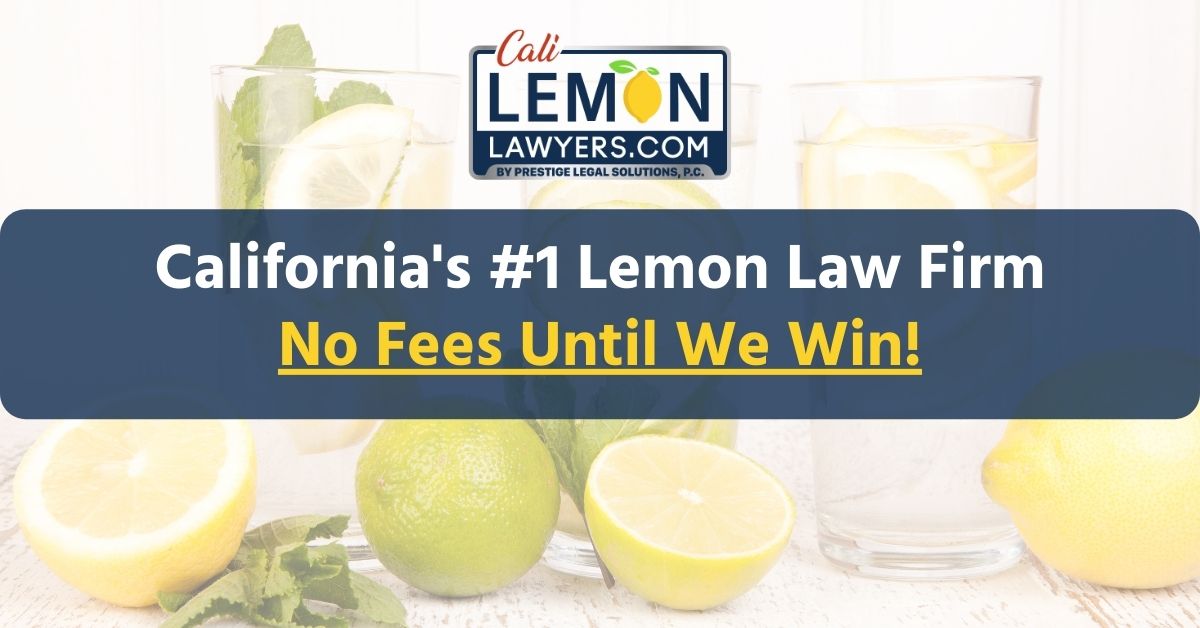California Car Warranty Lawyers
Protecting California Consumers in Breach of Warranty Claims
Car under warranty causing you problems? We can help. If you purchased or leased a defective car, our car warranty attorneys have the experience and track record to get you maximum compensation.
California Car Warranty Lawyers
Protecting California Consumers in Breach of Warranty Cases
Car under warranty causing you problems? We can help. If you purchased or leased a defective car, our car warranty attorneys have the experience and track record to get you maximum compensation.

Start Your FREE Breach of Warranty Claim Review

Start Your FREE
Breach of Warranty Review

Auto Warranty Lawyers
Specializing in Breach of Warranty Cases
Wondering if your car under warranty qualifies as a lemon? We can help. Cali Lemon Lawyers is a full-service car warranty law firm that represents clients in breach of warranty cases
Our services include filing all necessary paperwork on your behalf, investigating the lemon law claim and your vehicle, corresponding with the manufacturer to negotiate a refund, and making sure the entire process goes smoothly. With a qualified California lemon law lawyer on your side, you are more likely to be offered fair compensation. Our lemon law attorneys have successfully handled thousands of California lemon law cases!
If you have car problems because you purchased a lemon, our law firm is fully prepared to help you get the compensation you deserve. Contact us now for a free consultation.


Auto Warranty Lawyers
Specializing in Breach of Warranty Cases
Wondering if your car under warranty qualifies as a lemon? We can help. Cali Lemon Lawyers is a full-service car warranty law firm that represents clients in breach of warranty cases
Our services include filing all necessary paperwork on your behalf, investigating the lemon law claim and your vehicle, corresponding with the manufacturer to negotiate a refund, and making sure the entire process goes smoothly. With a qualified California lemon law lawyer on your side, you are more likely to be offered fair compensation. Our California lemon law attorneys have successfully handled thousands of lemon law cases!
If you have car problems because you purchased a lemon, our law firm is fully prepared to help you get the compensation you deserve. Contact us now for a free consultation.
Breach of Warranty Claim Process
Why Hire Our Car Warranty Lawyers?
We understand that realizing you have purchased a lemon can be an immensely stressful ordeal. Our California lemon law attorneys are helpful, informative, and straightforward. We will be there whenever you need us throughout the duration of your case and will handle the legal aspects of your California Lemon Law claim. You will always be kept in the loop and up to date on the whole process. We will never approve anything without your consent.
Our lemon law experts work on a contingency fee basis, meaning you don’t owe us any legal fees unless we successfully help you obtain a refund under California’s Lemon Law. See if you prequalify for a claim in five minutes or less!
Contact us online or at (310) 627-2665 to learn more. We speak English, Spanish, and Korean.
Our Car Warranty Clients Say It Best

“Won my lemon case…quick and easy.”

“There was no charge to me whatsoever.”

“I was able to receive a reimbursement…”

Let Us Take On Your California Car Dealer
Often, manufacturers don’t want you to know about the protections you have after purchasing a lemon, having the right team of lemon law attorneys in California to support you is how you can sweeten an otherwise sour deal.
Proudly Serving The Entire State of California
Recognized as the best lemon law attorneys in the state, Cali Lemon Lawyers by Prestige Legal Solutions, P.C. is California’s leading lemon law firm.





